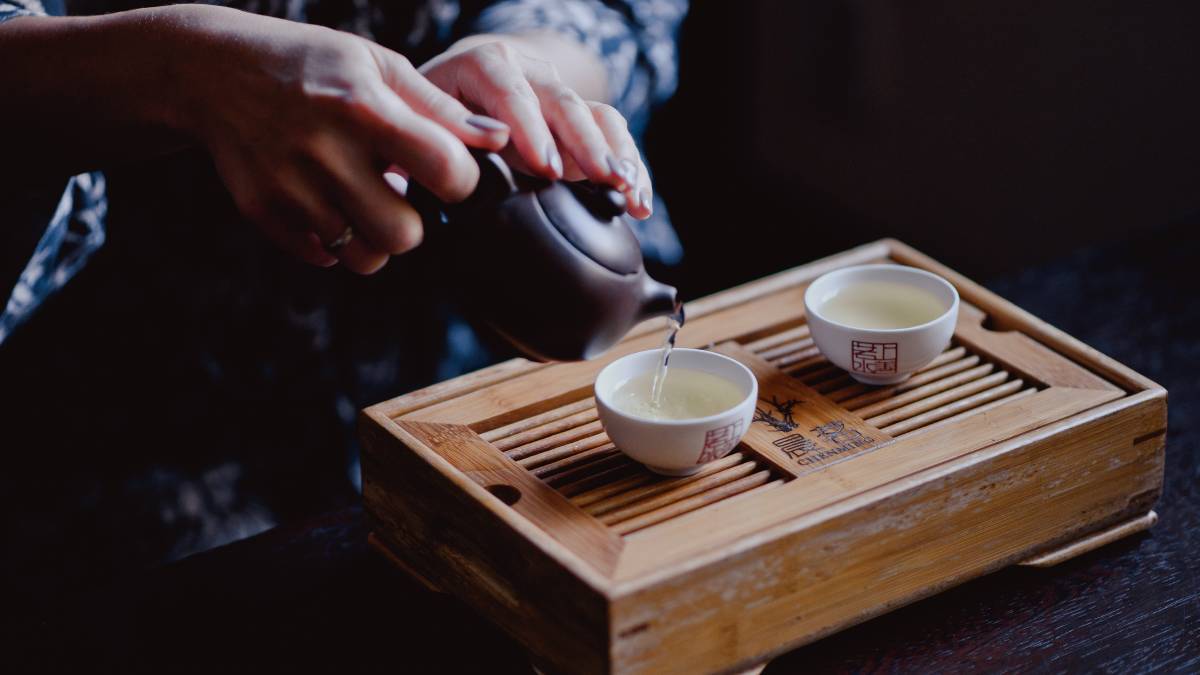Tea has been an integral part of Chinese culture for centuries, with a rich history and diverse varieties. Chinese tea is renowned for its numerous health benefits and cultural significance. However, like any other beverage or food item, it is essential to consider potential side effects, including the possibility of causing diarrhea.
Types of Chinese Tea:
Chinese tea comes in various types, each with its unique flavor profile, preparation method, and health properties. Some of the most popular types include green tea, black tea, oolong tea, white tea, and pu-erh tea. Each type undergoes different levels of oxidation and processing, leading to distinct characteristics.
General Health Benefits of Chinese Tea:
Before delving into the potential link between Chinese tea and diarrhea, it’s crucial to acknowledge the general health benefits associated with moderate tea consumption. Chinese tea, especially green tea, is rich in antioxidants, polyphenols, and other bioactive compounds. These components are believed to have positive effects on cardiovascular health, weight management, and even certain types of cancers.
Hygiene and Quality:
One of the primary factors that can influence whether Chinese tea causes diarrhea is the quality and hygiene of the tea leaves. Contaminants, such as pesticides, heavy metals, or microbes, can be present in low-quality tea leaves and may lead to gastrointestinal issues. It is essential to source tea from reputable producers who adhere to quality standards and ensure proper cultivation and processing practices.
Caffeine Content:
Tea contains caffeine, albeit in lower amounts compared to coffee. Caffeine is a natural stimulant that can have laxative effects in some individuals, especially if consumed in excess. While Chinese teas generally have lower caffeine content than black teas, it’s still worth considering individual sensitivity to caffeine, which can vary.
Tannins and Polyphenols:
Tea contains tannins and polyphenols, which are natural compounds that can have astringent properties. While these substances contribute to the unique taste and health benefits of tea, excessive consumption may irritate the gastrointestinal tract in some people, potentially leading to diarrhea. However, moderate intake is unlikely to cause adverse effects for the majority of individuals.
Oxalates in Tea:
Tea also contains oxalates, compounds that can contribute to the formation of kidney stones in susceptible individuals. While not directly linked to diarrhea, kidney stone-related issues can cause abdominal discomfort and changes in bowel habits.
Individual Variability:
Individual responses to tea consumption can vary significantly. Factors such as age, overall health, pre-existing medical conditions, and medication use can influence how the body reacts to the compounds present in tea. Some people may experience digestive issues like diarrhea as a result of individual sensitivity or underlying health conditions.
Possible Causes of Diarrhea from Tea Consumption:
- Caffeine Sensitivity: As mentioned earlier, some individuals are more sensitive to caffeine, and excess intake can lead to gastrointestinal disturbances, including diarrhea.
- Tannin Sensitivity: The astringent nature of tannins in tea may cause irritation in the digestive system for some people, potentially resulting in diarrhea.
- Contaminants: Low-quality tea may contain contaminants that can lead to gastrointestinal issues. It is crucial to purchase tea from reputable sources to minimize this risk.
- Tea Additives: Flavored or blended teas may contain additives that some individuals find difficult to digest, potentially causing gastrointestinal discomfort.
Preventing Diarrhea from Chinese Tea:
- Choose High-Quality Tea: Opt for high-quality tea from reputable producers to ensure that the leaves are free from contaminants.
- Moderation: Like any food or beverage, moderation is key. Excessive tea consumption, especially on an empty stomach, may increase the likelihood of digestive issues.
- Stay Hydrated: Drinking plenty of water alongside tea can help prevent dehydration, a common side effect of diarrhea.
- Be Mindful of Additives: If you have a sensitive stomach, consider choosing plain, unflavored teas to avoid potential gastrointestinal irritants found in flavored or blended varieties.
Conclusion:
In conclusion, Chinese tea, when consumed in moderation and sourced from reputable sources, is unlikely to cause diarrhea for the majority of individuals. The potential for adverse effects is influenced by factors such as individual sensitivity, overall health, and the quality of the tea.
As with any dietary choice, it’s essential to pay attention to your body’s response and consult with a healthcare professional if you experience persistent or severe gastrointestinal issues. By making informed choices and enjoying tea responsibly, individuals can continue to experience the many cultural and health benefits associated with Chinese tea.
